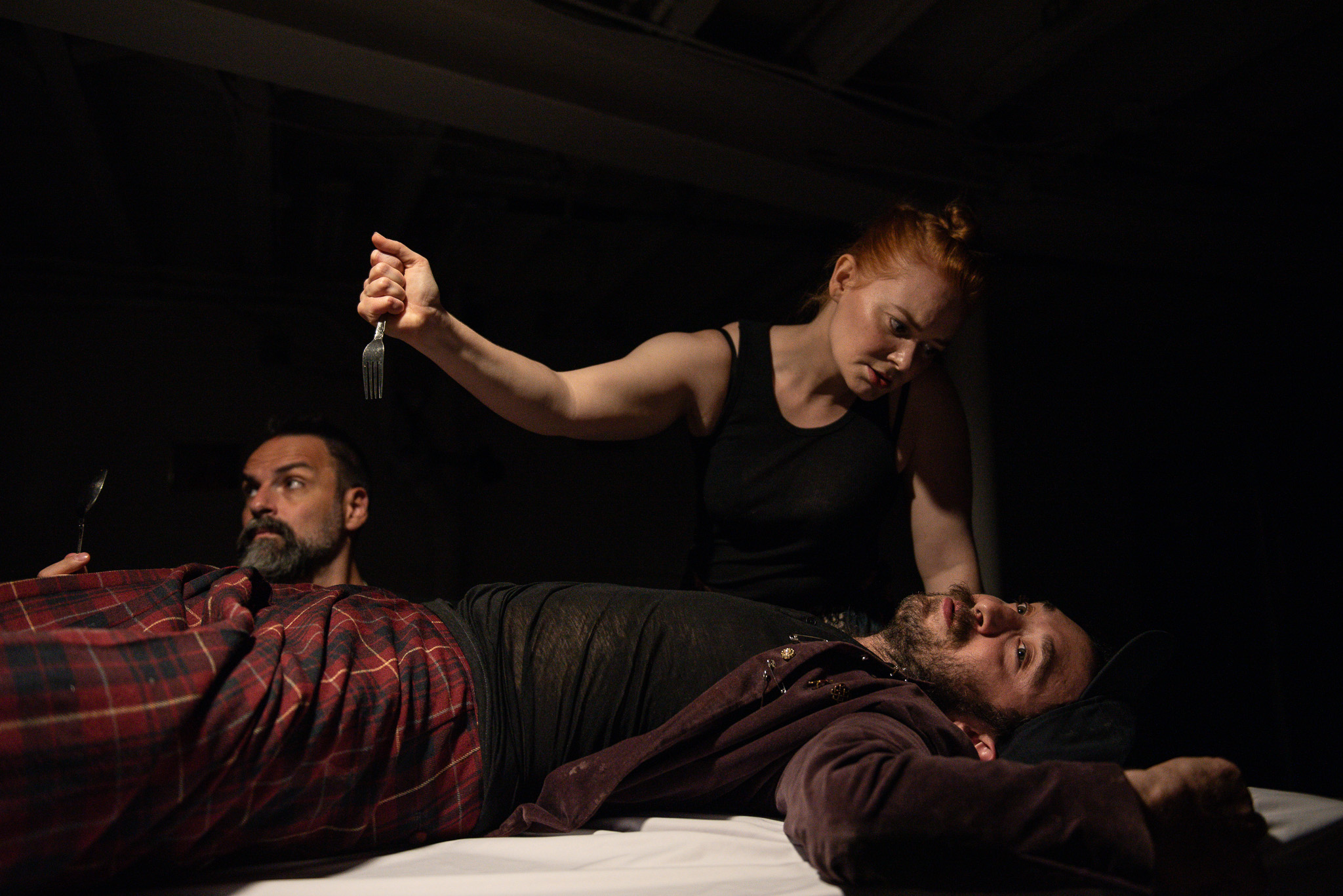Regardless of the delectably divergent tones of Midsummer and Macbeth, there was one thing past their shared location that firmly united the 2 reveals: an environment of camaraderie and pleasure. Anybody who repeatedly attends theatre might be aware of the indefinable however palpable zest that actors who’re actually having fun with themselves convey to the expertise. A bond of real friendship and respect between castmates deepens the moments of hazard along with the moments of levity: in spite of everything, it requires a specific amount of belief to place your self in bodily and emotionally weak positions. It was clear all through each performances that Mahoney and Wilkinson’s actors trusted one another and their administrators implicitly. It was equally apparent that they have been genuinely having a superb time—and due to that, so did everybody in attendance.
Each of us got here into the room making an attempt to ask, “How can we fully throw away these energy constructions and construct one thing that seems like there isn’t a ego within it?”
In dialog with Mahoney and Wilkinson after the joint runs of Midsummer and Macbeth had ended, they defined that the curation of this dynamic was not solely purposeful, however in truth considered one of their foremost targets in founding Double Characteristic. Their strategy hinged on establishing a non-hierarchical construction, one supposed to foster a transparent alternate of communication and place equal worth on the wants and voices of all artists concerned. “Directing comes with all of those assumptions about preset positions and energy constructions,” remarked Mahoney. “And each of us got here into the room making an attempt to ask, ‘How can we fully throw away these energy constructions and construct one thing that seems like there isn’t a ego within it?’”
Each administrators emphasised {that a} lack of hierarchy shouldn’t be equal to an absence of accountability. “You do not want a hierarchy for individuals to have tasks,” Wilkinson defined. “Mikhaela and I are actually clear about what we put ahead and what we anticipate again. All people is aware of their tasks, and it doesn’t suggest there must be energy connected to it.” Reasonably than being accountable to a single authority determine, every member of the group was accountable to your complete ensemble. “Should you create an area the place you might be listening to everybody, then everybody additionally listens to one another,” stated Mahoney.
Mahoney and Wilkinson have been nicely conscious that they have been embarking on an experiment, and that their strategies is perhaps branded as idealistic by these accustomed to a extra regimented chain of command. The pair approached this problem with a grounded practicality. “It isn’t a utopia,” Mahoney shared candidly. “We’re simply doing our greatest. We do not have as many assets as we’d wish to give individuals. And that may typically really feel like a barrier to even beginning.” When moments of battle did come up within the manufacturing course of, they have been certainly typically associated to a pressure on their time, funds, and provides. “In a second the place there are two individuals who want the identical factor, and nobody is extra in cost than the opposite, how do you truly do this?” Wilkinson requested. “By having deep conversations, being actually clear about what you want, and likewise being keen to, in that second, assume past your self and put care ahead.”
This emphasis on care prolonged past Mahoney and Wilkinson to embody each particular person concerned within the manufacturing. Every group member’s function and particular duties have been laid out explicitly from the start of the method “so that folks can have freedom within that construction,” in response to Wilkinson. This not solely helped to supply an organizational spine, however allowed actors the pliability to proceed taking up different work to assist themselves economically throughout rehearsals and performances. “The large factor I believe that additionally builds neighborhood is transparency,” stated Wilkinson. “Once I was emailing actors, I used to be like, ‘That is how a lot I will pay you. I do know that I can not pay you what you are price. And we perceive what your life goes to appear to be. We perceive that you will perhaps be working one other job.’” Basically, Mahoney and Wilkinson made each attainable effort to make participation in Double Characteristic accessible for his or her actors and crew.
As Mahoney and Wilkinson mentioned how they constructed the neighborhood that introduced Midsummer and Macbeth to life, I couldn’t assist however consider the various bigger theatre firms that pay their artists a lot better sums of cash however supply absolutely the minimal (and generally even lower than that) in establishing a humane and completely happy area during which to work. Does there come some extent at which a theatrical establishment turns into too giant to successfully perform as a neighborhood? Or is it not a query of scale, however of constant and care-driven communication? And, if practices like Double Characteristic’s have been adopted, would possibly these bigger establishments be higher capable of keep away from all-too-common acts of unintended mistreatment towards these concerned of their productions?

